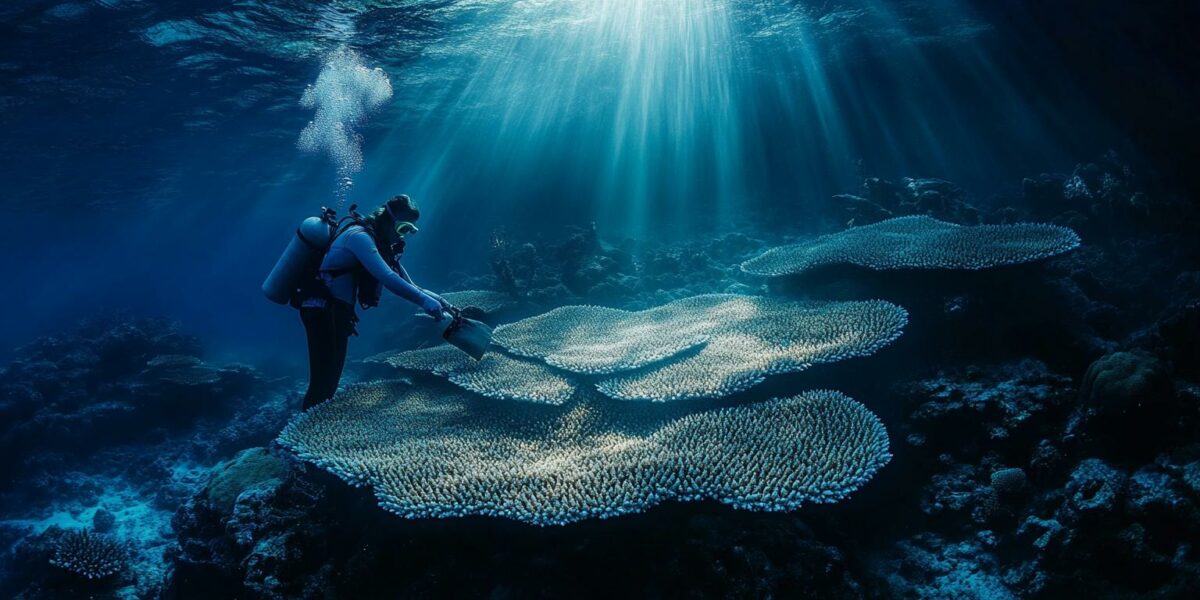Revealing the Secrets of Ancient Corals
A landmark study has utilized a 627-year-old coral record from Fiji to uncover groundbreaking insights about ocean temperatures and climate variability in the Pacific Ocean dating back to 1370. This extensive coral record offers a unique perspective on how our climate has evolved over centuries.
Published in Science Advances, the research, co-authored by prominent climate scientists, demonstrates the impact of human-driven climate change on long-term climate patterns in the Pacific. This study highlights how these patterns have evolved over time, providing crucial data for future predictions.
The coral data indicates that from 1380 to 1553, ocean temperatures were akin to those in the late 20th and early 21st centuries. However, the Pacific warming observed since 1920, mainly due to human activities, diverges significantly from the natural trends of previous centuries.
This new record also points out that current ocean temperatures are the highest they’ve been in the last 653 years, offering a stark reminder of the ongoing changes in our climate.
Impact on Climate and Weather Patterns
The findings provide valuable insights into how contemporary climate trends are altering weather patterns and leading to more extreme events. These shifts have profound implications for millions of people residing in the Indo-Pacific region.
Corals act as natural archives, preserving historical environmental conditions. This unparalleled 627-year coral record (1370–1997) stands as the longest continuous sea surface temperature reconstruction available, offering a rich source of data for scientists.
Recently, another significant study revealed a 400-year coral record indicating severe damage to the Great Barrier Reef from record-high ocean temperatures. These findings underscore the urgency of addressing climate change.
The team leveraged the Fijian coral record to reconstruct the Interdecadal Pacific Oscillation, a major climate variability phenomenon, effectively doubling the length of previous reconstructions. This extensive analysis sheds light on the atypical warming observed over the last century.
Understanding Long-Term Climate Variability
According to Dr. Ariaan Purich, comprehending long-term climate variability in the Pacific is essential for forecasting future climate scenarios. The new reconstruction disentangles the climate change signal from natural variations, aiding in more accurate projections.
This research, led by Dr. Juan Pablo D’Olivo and Professor Jens Zinke, involved a global team of earth and climate scientists from Mexico, the UK, France, Germany, and Australia. Their collaborative efforts have produced a significant contribution to climate science.
The coral record, based on geochemical analysis of the Sr/Ca ratio, offers a proxy for past ocean temperatures. This data was meticulously collected from a giant boulder coral colony in the Fijian Archipelago.
Dr. Purich emphasized the broad implications of these findings, noting that temperature variations across the Pacific can significantly influence weather systems. For example:
- Broad-scale warming may lead to a drier climate in the Coral Sea region.
- This shift affects both people and ecosystems across vulnerable Pacific Island nations.
- The study underlines the need for robust climate action to mitigate these impacts.
Implications for Future Climate Policies
The study provides a powerful incentive for the global community to strive towards limiting global warming to 1.5ºC. Developing renewable energy sources, electrifying the economy, and phasing out fossil fuels are critical steps in this direction.
As Dr. Purich pointed out, understanding historical climate variability is crucial for predicting future changes. This new, extensive coral record is a valuable tool in this ongoing effort.
The international collaboration behind this research highlights the importance of global cooperation in tackling climate change. By pooling resources and expertise, scientists can achieve significant breakthroughs in our understanding of climate dynamics.
Ultimately, this study’s findings emphasize the urgent need for comprehensive climate strategies to safeguard our planet’s future.



katherine
Fascinating read, but isn’t 627 years a bit too specific? Just curious!
Oscar
This is groundbreaking! How will this data influence current climate policies?
harley
Can someone explain what the Interdecadal Pacific Oscillation is in simpler terms?
morgan
What are the next steps for research in this area? This is fascinating!
Wyatt
Is there a possibility that the coral data might be affected by other factors like pollution?
HudsonElysium
OMG, this is amazing! Can’t believe corals can tell us so much! 😮
isabellezen
How reliable is the Sr/Ca ratio analysis for determining past ocean temperatures?
charlottemirage
Thank you for sharing this valuable research. It’s crucial for understanding climate change.
David_Flare
Wow, 627 years is a long time! Does this mean we can predict future trends more accurately now?
Carter
This is incredible! How did they manage to extract such old coral data? 🌊